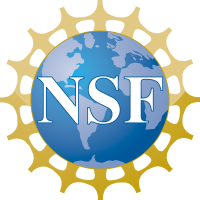You are here
Bioinformatics Collective Data Access Policy
Northeast Bioinformatics Consortium Data Sharing Policy
The Northeast Bioinformatics Consortium (NEBC), as part of the Northeast Cyberinfrastructure Consortium (NECC), has developed guidelines for data sharing and access based on a large scale regional genomics project. These policies serve as a guide for future collaborative projects within the NECC.
Little Skate Genome Sequence Project
There are three major phases to the skate genome sequencing and annotation project: sequencing, assembly and annotation. We propose to limit public access to the data in stages, while allowing unlimited access to investigators at INBRE institutions within the North East Cyberinfrastructure Consortium (NECC; Delaware, Maine, New Hampshire, Rhode Island and Vermont) in order to prioritize and facilitate their research programs. Collaborators of these investigators will also be given access to the data with the expectation of co- authorship on resulting publications or presentations that precede public release of the data. It is the intent that those involved in the sequencing project in various capacities (e.g., annotation and assembly) will produce a summary manuscript when the work has reached a level of maturity worthy of publication. Those directly involved in the sequencing, assembly and annotation of the skate genome data will comprise the “Little skate genome sequence consortium” and these individuals will be authors on such a summary manuscript.
The following are guidelines for data access and use prior to the completion of the project.
Sequencing Phase:
While sequence is being generated, investigators at NECC INBRE institutions and their collaborators (as defined above) will be allowed access to the raw sequence data for research purposes. If such investigators use these reads to support their research and either publish or publicly present their findings, then a) they may make only the relevant sequence data publicly available and b) the INBRE grants involved in the skate sequencing project (Delaware, Vermont and Maine) must be acknowledged according to the guidelines of the National Center for Research Resources (NCRR). Authors listed need only include those who made significant intellectual contributions to the body of work being presented (ie, the consortium members do not need to be named unless involved significantly in the research project being published or presented).
Should an investigator unrelated to any NECC INBRE institution or
investigator approach the consortium requesting access to the raw data prior to
release, NECC members will consider the request as a group on a case-by-case
basis.
Assembly Phase:
During the assembly phase, different approaches will be investigated to maximize data quality. Interim assemblies will be available to investigators at NECC INBRE institutions with the understanding that data will be a work in progress. As with the sequencing phase, investigators at NECC INBRE institutions and their collaborators who are able to leverage the assembled data and either publish or publicly present their findings, a) may make only the relevant sequence data publicly available and b) must acknowledge INBRE grants involved in the skate sequencing project (Delaware, Vermont and Maine) according to the guidelines of the NCRR.
Assembled sequence data will be released publicly after the assembly phase is complete or after the data have met appropriate standards as defined by the National Center for Biotechnology Information (NCBI) and genome assembly communities.
Annotation Phase:
The annotation phase will require the largest team of researches we can build inside and outside the NECC INBRE network in order to expedite the annotation of the genome and subsequent publication of the paper describing the genome. Several strategies will be explored to facilitate annotation of the assemblies including: a) encouraging investigators at NECC INBRE institutions to reach out to larger scientific community to find collaborators to annotate the genome; b) conduct the planned annotation jamborees; c) possibly coordinate teams of researchers who are experts in particular gene families.
Results of coordinated annotation efforts will be published in a skate genome sequencing and annotation paper.


